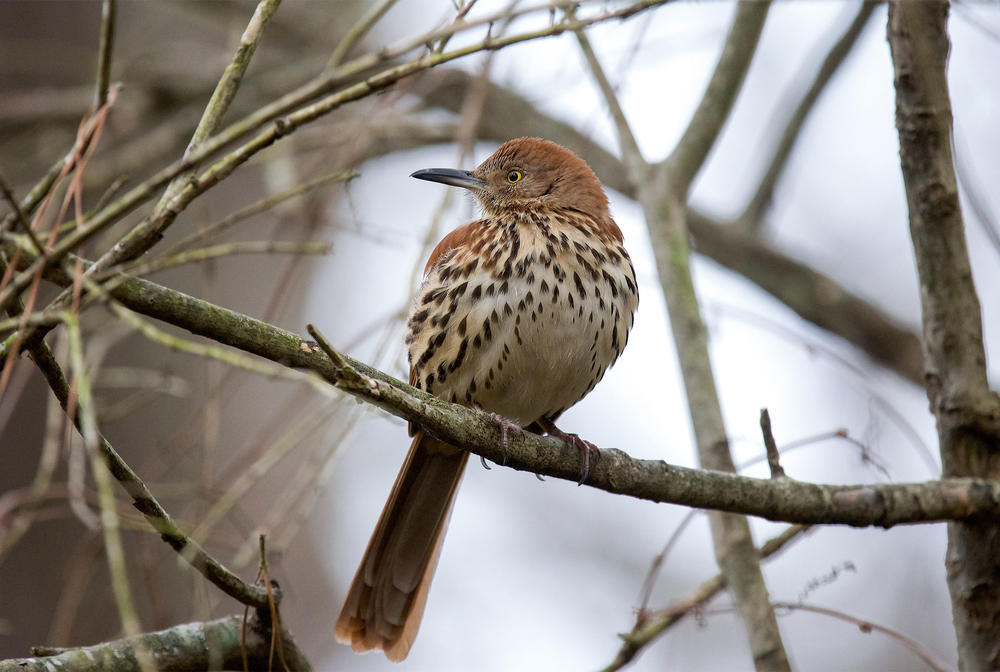
Caption
Among the nearly 1,100 species the Migratory Treaty law protects are Georgia's own state bird, the brown thrasher, and many others, like the wood stork, barred owl and indigo bunting, that visit the state.
Credit: GPB File photo

Among the nearly 1,100 species the Migratory Treaty law protects are Georgia's own state bird, the brown thrasher, and many others, like the wood stork, barred owl and indigo bunting, that visit the state.
The Interior Department is delaying a last-minute Trump administration rule that would have weakened a century-old law protecting migratory birds, Interior officials said Thursday.
Two weeks before former President Donald Trump left office, the Interior Department published a final rule that would have left the federal government unable to enforce the Migratory Bird Treaty Act against polluters whose actions lead to the accidental deaths of more than 1,000 migratory bird species.
The rule was set to go into effect Monday.
The Biden administration Interior Department did not specify how long the delay would be, but said it would allow the department to “determine what next steps may be taken.”
The Fish and Wildlife Service is also opening a 20-day public comment period on the rule.
The rule codified Trump administration policy not to enforce the law in instances of accidental bird deaths. A federal judge ruled last year that was inconsistent with the meaning of the law. The Trump administration finalized the rule anyway on Jan. 7.
“The Trump administration sought to overturn decades of bipartisan and international precedent in order to protect corporate polluters,” Interior spokeswoman Melissa Schwartz said in a statement. “At President Biden’s direction, Interior is delaying and reviewing the Trump administration’s rollback of the MBTA to ensure continued progress toward common sense standards that protect wildlife and their habitats.”
Environmental groups filed a federal suit challenging the rule.
Noah Greenwald, director for the endangered species program at the environmental group Center for Biological Diversity, speculated on Thursday the delay could be buying the administration time as it decides how to effectively roll back the rule, though the lawsuit could have provided a convenient venue to kill the rule if that’s what the administration wanted.
Greenwald added he hoped to see a full rulemaking to strengthen the law.
This story comes to GPB through a reporting partnership with Georgia Recorder.